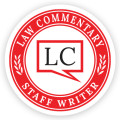North Carolina's Republican candidate for governor, Mark Robinson, has filed a $50 million defamation lawsuit against CNN, accusing the network of publishing false and damaging claims. The lawsuit, filed Tuesday in Wake County Superior Court, centers around a September CNN report that alleged Robinson had made offensive and inflammatory comments on a pornography website over a decade ago. According to CNN, Robinson, who is also the state’s lieutenant governor, had referred to himself as a “black Nazi” and made statements supporting slavery under the pseudonym "minisoldr."
Robinson, an African-American and the Republican candidate in the state's 2024 gubernatorial race, strongly denies the allegations. In the lawsuit, Robinson’s legal team called CNN’s report a “malicious hit job,” claiming it was based on unverifiable information and designed to damage his electoral prospects. The lawsuit also argues that CNN acted recklessly in publishing the report despite allegedly having doubts about the veracity of the information. Robinson’s attorneys claim the network ignored the truth and timed the story to derail his campaign ahead of the November 5 election, where Robinson faces Democratic candidate Josh Stein.
Defamation is a legal claim involving false statements that harm someone's reputation. It comes in two forms: libel, which refers to written statements, and slander, which involves spoken statements. To succeed in a defamation lawsuit, the plaintiff must generally prove the following elements:
- A false statement was made about the plaintiff.
- The statement was communicated to others (published).
- The statement caused harm to the plaintiff's reputation.
- In some cases, the plaintiff must also prove that the defendant acted with actual malice or negligence depending on whether the plaintiff is a public figure.
In Mark Robinson's lawsuit against CNN, Robinson claims that the news outlet falsely attributed offensive statements to him, accusing him of calling himself a "black Nazi" and making lewd comments on a pornography website. Robinson asserts that these statements are fabricated and defamatory, severely damaging his reputation as he runs for governor of North Carolina.
Robinson, as a public figure, faces the higher standard of proving actual malice—that CNN either knew the statements were false or acted with reckless disregard for the truth. He contends that CNN published the story with doubt about its veracity, aiming to tarnish his image just ahead of the state's gubernatorial election.
At a press conference, Robinson condemned the report, describing the lawsuit as a fight against “one of the greatest examples of political interference in this state’s history.” He argued that CNN’s allegations, sourced from a reported data breach involving the dark web, were unsubstantiated and deliberately misleading. Despite CNN offering Robinson a chance to respond before publication, Robinson claims he was denied access to examine the data that formed the basis of the network’s accusations.
According to a Reuters report, CNN has not commented on the lawsuit, and Robinson’s legal team, led by Virginia attorney Jesse Binnall—who has represented former President Donald Trump in past cases—has not issued further statements. Robinson, who is backed by Trump in his gubernatorial bid, asserts that the defamatory claims have negatively impacted his campaign at a critical juncture, with polls in September showing his opponent Stein leading.
The lawsuit seeks $50 million in damages for what Robinson’s team describes as reckless and false reporting by CNN.






